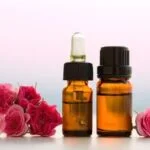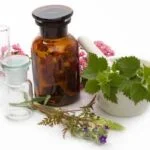Aromatherapy has gained popularity for its potential to promote relaxation, improve mood, and enhance overall well-being. One common question that arises is, “Can you put aromatherapy oil on skin?” In this article, we will explore the use of aromatherapy oils in skincare, including the types of essential oils used, safety precautions, best practices for application, and its potential benefits for various skin conditions.
Aromatherapy oil, also known as essential oil, is a concentrated liquid derived from plants through methods such as distillation or cold-pressing. These oils have been used for centuries for their therapeutic properties and are increasingly recognized for their potential benefits in skincare. Aromatherapy oils are versatile and can be incorporated into a range of skincare products such as lotions, creams, serums, and masks.
When it comes to using aromatherapy oils on the skin, it’s essential to understand the types of oils available and their specific benefits for skincare. Each essential oil has unique properties that can address various skin concerns such as acne, aging skin, dryness, and inflammation. Understanding the different types of aromatherapy oils will allow individuals to choose the most appropriate option for their specific skincare needs.
Types of Aromatherapy Oils
Aromatherapy oils have been used for centuries for their various health and wellness benefits, including skincare. There are numerous types of essential oils that can be used in aromatherapy, each offering unique properties and benefits for the skin. When it comes to using aromatherapy oils on the skin, it is important to choose the right oil based on your skin type and specific skincare needs.
Here are some popular types of aromatherapy oils that are commonly used in skincare and their benefits for the skin:
1. Lavender Oil: Known for its calming and soothing properties, lavender oil can help reduce redness and irritation, making it suitable for sensitive or acne-prone skin.
2. Tea Tree Oil: With its powerful antibacterial and anti-inflammatory properties, tea tree oil is often used to treat acne and other skin infections.
3. Rosehip Oil: Packed with vitamins, antioxidants, and essential fatty acids, rosehip oil is excellent for hydrating dry or aging skin, as well as reducing the appearance of scars and fine lines.
4. Frankincense Oil: This versatile oil has been shown to promote cell regeneration and improve skin tone and elasticity, making it a great choice for mature or damaged skin.
When using aromatherapy oils on the skin, it is crucial to follow safety precautions such as proper dilution and patch testing to avoid any adverse reactions. Additionally, incorporating these oils into a skincare routine in a thoughtful manner can lead to noticeable improvements in overall skin health and appearance.
Remember that everyone’s skin is different; what works well for one person may not work well for another. Always consult with a dermatologist or healthcare professional if you have any concerns about using aromatherapy oils on your skin”.
Safety Precautions
Aromatherapy oils are natural, plant-derived oils that are often used in skincare for their therapeutic benefits. However, it is important to take safety precautions before applying aromatherapy oil to the skin. One of the most crucial safety measures is dilution.
Essential oils are highly concentrated and can cause skin irritation or sensitization if used undiluted. It is recommended to dilute essential oils with a carrier oil, such as coconut oil or sweet almond oil, before applying them to the skin.
Patch testing is another important safety precaution when using aromatherapy oils on the skin. This involves applying a small amount of diluted essential oil to a small area of skin and observing for any adverse reactions over the next 24 hours. This test can help identify any potential allergic reactions or sensitivities to specific essential oils.
In addition, it is vital to do thorough research on the specific essential oil being used and its potential effects on the skin. Some essential oils are phototoxic, meaning they can cause skin sensitivity when exposed to UV light. Understanding the properties of different essential oils can help prevent any negative reactions when using them on the skin. Overall, taking these safety precautions ensures that aromatherapy oils can be enjoyed safely and effectively for skincare purposes.
| Safety Precautions | Importance |
|---|---|
| Dilution | Prevents skin irritation or sensitization |
| Patch Testing | Identifies potential allergic reactions or sensitivities |
| Research | Understanding properties of different essential oils |
Best Practices
When it comes to using aromatherapy oils on the skin, there are important best practices to keep in mind in order to ensure safety and effectiveness. Proper application of these oils can enhance their benefits and minimize potential risks.
Dilution and Patch Testing
One of the most important best practices when applying aromatherapy oil to the skin is proper dilution. Essential oils are highly concentrated and can be irritating or even cause allergic reactions if used at full strength. It’s essential to dilute the essential oil with a carrier oil, such as almond oil or coconut oil, before applying it to the skin.
Additionally, conducting a patch test before using a new aromatherapy oil is crucial. This involves applying a small amount of diluted oil to a small area of skin and waiting 24 hours to see if any irritation occurs.
Application Techniques
To get the most out of aromatherapy oils for skincare, it’s important to use proper application techniques. For general use on larger areas of skin, such as during a massage or body treatment, blending essential oils into a carrier oil or unscented lotion is effective.
For targeted application on specific areas of concern, such as acne spots or dry patches, applying a small amount of diluted essential oil directly to the affected area using a cotton swab can be beneficial.
Frequency and Consistency
Incorporating aromatherapy oils into your skincare routine can provide long-term benefits for your skin. However, it’s important to use them consistently and in moderation. Overuse of essential oils on the skin can lead to sensitization or other adverse reactions over time. As with any skincare product, it’s important to listen to your skin and make adjustments as needed based on how it responds to the aromatherapy oil.
By following these best practices for using aromatherapy oils on the skin, you
Skin Conditions
Aromatherapy oils have been used for centuries to treat a variety of skin conditions, including acne, eczema, and aging skin. These essential oils are derived from plants and contain therapeutic properties that can benefit the skin in numerous ways. When used properly, aromatherapy oils can be an effective and natural solution for improving the overall health and appearance of the skin.
Acne is a common skin condition that affects millions of people worldwide. Aromatherapy oils such as tea tree oil, lavender oil, and rosemary oil have been shown to have anti-inflammatory and antibacterial properties that can help reduce acne breakouts and improve the appearance of blemishes. These oils can be applied topically to affected areas with a carrier oil to help soothe irritation and promote healing.
Eczema is another skin condition that can greatly benefit from the use of aromatherapy oils. Essential oils like chamomile, calendula, and geranium have soothing and anti-inflammatory properties that can help alleviate the discomfort associated with eczema flare-ups. When diluted properly, these oils can be applied to the affected areas to provide relief from itching and reduce redness.
Aging skin is a natural part of life, but essential oils can help slow down the aging process and promote youthful-looking skin. Oils like frankincense, rosehip, and neroli are known for their rejuvenating effects on the skin. They can help improve the appearance of fine lines and wrinkles, as well as enhance firmness and elasticity. By incorporating these oils into your skincare routine, you can nourish your skin with natural antioxidants and vitamins that promote a healthy complexion.
| Skin Condition | Aromatherapy Oil(s) |
|---|---|
| Acne | Tea Tree Oil, Lavender Oil, Rosemary Oil |
| Eczema | Chamomile Oil, Calendula Oil, Geranium Oil |
| Aging Skin | Frankincense Oil, Rosehip Oil, Neroli Oil |
DIY Aromatherapy Skincare Recipes
Homemade Aromatherapy Facial Oil
Creating your own aromatherapy facial oil is a great way to customize your skincare routine and address specific skin concerns. To make your own facial oil, you will need a carrier oil such as jojoba, almond, or coconut oil, along with essential oils that are suitable for facial application. For example, lavender and tea tree essential oils can be beneficial for acne-prone skin, while rose and frankincense essential oils are popular choices for anti-aging properties.
To create your homemade aromatherapy facial oil, start by adding 1-2 drops of your chosen essential oils to 1 ounce of carrier oil. Be sure to perform a patch test on a small area of your skin before applying the oil to your face to ensure that you do not experience any adverse reactions.
Once you have confirmed that the blend is safe for use, gently massage a few drops of the facial oil onto clean skin in upward motions.
Soothing Aromatherapy Bath Salts
Another enjoyable way to incorporate aromatherapy into your skincare routine is by creating homemade bath salts infused with essential oils. Bath salts can help relax the mind and body while also nourishing the skin. For a soothing aromatherapy bath salt recipe, combine Epsom salts or sea salt with a few drops of calming essential oils such as chamomile, ylang-ylang, or lavender.
To make your own bath salts, mix 1 cup of salt with 5-10 drops of essential oils in a bowl until well combined. Store the scented salts in an airtight container and add about ½ cup to warm bathwater when ready to use. As you soak in the aromatic bath, the essential oils will be released into the water and can help moisturize and rejuvenate your skin.
Refreshing Aromatherapy Body Scrub
Exfoliating your skin with an aromatherapy body scrub can help remove dead skin cells and promote healthy circulation while leaving behind a delightful scent. To create a simple yet effective body scrub at home, combine granulated sugar or sea salt with a carrier oil such as almond or coconut oil and add refreshing essential oils like citrus (orange or lemon) and peppermint.
Mix together 1 cup of sugar or salt with ¼ cup of carrier oil and 10-15 drops of essential oils until it forms a scrub-like consistency. Gently massage the mixture onto damp skin in circular motions before rinsing off with warm water. This aromatic body scrub can leave your skin feeling soft, smooth, and revitalized while indulging in the benefits of aromatherapy.
Research and Studies
Aromatherapy has been gaining popularity in the skincare world, with many people incorporating essential oils into their daily beauty routine. But can you put aromatherapy oil on skin? While there is a lot of anecdotal evidence supporting the benefits of using essential oils on the skin, it’s important to look at the scientific research to understand their effectiveness and potential risks.
1. Clinical Studies: Several studies have been conducted to evaluate the effects of aromatherapy oils on the skin.
One study published in the Journal of Cosmetic Dermatology found that lavender essential oil had significant anti-inflammatory and antioxidant properties when applied topically, making it an effective treatment for various skin conditions such as acne and eczema. Another study in the International Journal of Molecular Sciences concluded that tea tree oil demonstrated antimicrobial and anti-inflammatory effects when used on the skin, suggesting its potential for treating acne.
2. Safety Concerns: While there is evidence supporting the benefits of using aromatherapy oils on the skin, it’s crucial to address safety concerns. Essential oils are highly concentrated and potent substances that need to be diluted before being applied to the skin to avoid irritation or allergic reactions. Research also highlights the importance of patch testing essential oils on a small area of the skin before widespread application to ensure there are no adverse reactions.
3. Future Research Directions: Despite existing evidence, more research is needed to fully understand the long-term effects and potential risks associated with using aromatherapy oils on the skin. Future studies could focus on identifying specific essential oil formulations for different skin types and conditions, as well as investigating any potential interactions with other skincare products or medications.
Conclusion
In conclusion, aromatherapy oils have been shown to offer numerous benefits for the skin, including moisturizing, healing, and rejuvenating properties. When used properly, these essential oils can address various skin concerns and promote overall skin health. However, it is crucial to exercise caution and follow safety precautions when applying aromatherapy oils to the skin.
As mentioned earlier, dilution and patch testing are essential steps before using aromatherapy oils on the skin. This helps reduce the risk of adverse reactions and sensitivities. Additionally, always choose high-quality, pure essential oils from reputable sources to ensure their efficacy and safety.
It is also important to note that while aromatherapy oils can benefit the skin, they are not a substitute for professional medical advice or treatment for serious skin conditions. If you have a chronic or severe skin issue, it is best to consult with a dermatologist or healthcare provider before incorporating aromatherapy oils into your skincare routine.
Overall, when used responsibly and with care, aromatherapy oils can be a valuable addition to a natural skincare regimen. So yes indeed, you can put aromatherapy oil on skin but always with caution in mind.
Frequently Asked Questions
Can I Use Aromatherapy Oils on My Skin?
Aromatherapy oils can be used on the skin, but it’s important to dilute them properly with a carrier oil before application. Some essential oils can cause irritation or allergic reactions, so it’s important to do a patch test first.
Can You Use Aromatherapy Oils Topically?
Using aromatherapy oils topically is a common practice in aromatherapy. When applying essential oils to the skin, it’s essential to dilute them with a carrier oil to avoid any adverse reactions. Be cautious of photosensitive oils that can cause skin sensitivity when exposed to sunlight.
Which Essential Oils Should Not Be Used on Skin?
Not all essential oils are suitable for direct application on the skin. Some essential oils, such as cinnamon, clove, and oregano, are known for their potential irritating effects and should be avoided for topical use. It’s crucial to research and understand the properties of each essential oil before using them on the skin to prevent any negative effects.

Are you looking for a natural way to improve your health and wellbeing?
If so, aromatherapy may be the answer for you.





